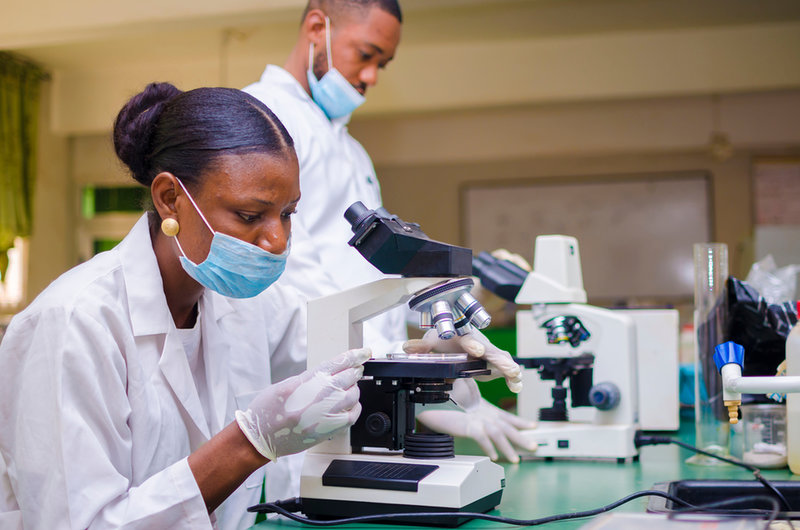Clinical labs
Could Africa become a clinical trial powerhouse?
With its broad and diverse population, Africa can provide many of the conditions ideal for carrying out clinical research, but despite the clinical advantages, the continent contributes to a tiny proportion of the total number of clinical trials. Abi Millar analyses Africa’s potential to become a hotbed for clinical research and the roadblocks stopping that from happening.

T
o date, the African continent has not been known as a hotbed of clinical research. Despite playing host to 17.5% of the global population, the continent is dramatically underrepresented in clinical trials – only 2.5% of clinical trials take place here, according to one estimate. Of those trials, the majority occur in South Africa or Egypt, with many countries barely conducting any studies at all.
This has some serious drawbacks, both for the clinical trial sponsors and the African population. From the sponsors’ perspective, they are missing out on the opportunity to conduct comparatively cheap research with a diverse patient population, often enrolling patients who have never experienced any treatment for their disease.
From the perspective of ordinary people, a lack of clinical research could mean a lack of suitable medicines. We know that some diseases are more prevalent in certain ethnic groups, and that genetic makeup can factor greatly in a person’s response to treatment. That means you can’t necessarily extrapolate results from Seattle and assume they will apply in Senegal.
As Dr Katy Graef, vice-president of programs at BIO Ventures for Global Health (BVGH), explains, it is particularly important that oncology studies are carried out locally.
“Prior research has demonstrated that there are genetic differences between the cancers that are found in individuals of African descent versus those of Caucasian descent,” she says.
“That results in differences in the prevalence on certain cancers, the age at which individuals are diagnosed with cancer, and the potential outcomes – which is not necessarily always just related to access to care. It’s really important that any sort of intervention needs to be tested in a diverse array of ethnic backgrounds.”
It also goes without saying that infectious disease studies ought to be carried out in areas where these conditions are endemic. In pre-Covid-19 times at least, sub-Saharan Africa shouldered as much as 50% of the global burden of infectious disease.
Spotlight on a trial in Malawi
Dr Pui-Ying Iroh Tam, senior paediatrician at the Malawi-Liverpool Wellcome Clinical Research Programme, recently worked on the implementation of a trial in Malawi. This was a Phase IIA trial of clofazimine, a drug to treat cryptosporidial diarrhoea in patients with HIV.
As Iroh Tam’s team reported in a 2020 paper, they faced a number of challenges getting the trial up and running. These related to study initiation, study population, and cultural factors.
“We were able to overcome these challenges, primarily by focusing on regulatory and operational barriers, to successfully conduct a rigorous trial with complex endpoints,” she says. “Our lessons learnt can be extrapolated to other clinical trials on the African continent.”
Thinking about the continent more broadly, she feels infrastructure poses a major obstacle – both from the regulatory and the supply side. It was recently reported that only seven medical labs in Nigeria met international regulatory standards, out of a total of 5,349.
Funders and sponsors need to recognise that, with some investment, clinical trials can be conducted to a high standard in Africa.
“The African Academy of Sciences and other bodies have been involved in strengthening the regulatory infrastructure, but obviously Africa is a continent consisting of 54 countries with varying processes and existing capacity,” says Iroh Tam. “Poorly developed supply chains pose difficulties with getting the needed equipment and materials to the site of research.”
On top of that, many sites struggle with capacity building, specifically when it comes to developing the right research team. Researchers need to be able to independently conceive and lead clinical trials locally, and they need sufficient training to carry out the trials to a high standard. Iroh Tam feels that both local and international funders and sponsors have a responsibility in this arena.
“Funders and sponsors need to recognise that, with some investment, clinical trials can be conducted to a high standard in Africa,” she remarks. “The breadth of conditions and disease burden on this continent make this an opportune setting for clinical research, with a high likelihood of having a significant impact on health and disease.”

Moving beyond infectious disease
While infectious diseases may command the most attention, the continent also experiences a significant burden of non-communicable disease. Cancer now kills more Africans than malaria, while conditions like type 2 diabetes and cardiovascular disease are on the rise.
Unfortunately, cancer studies are very limited on the continent – and many of the ones that do get up and running are focused on diseases like cervical cancer, which have a clear link with an infectious agent. They also tend to be initiated by external groups partnering with the site.
As Jennifer Dent, president and CEO of BVGH, explains, it’s imperative that international pharma companies come to Africa and start to bridge that cancer data gap.
“Figuring out how to conduct clinical trials in African countries is absolutely critical for industry,” she says. “It can sometimes be tough to figure out how to conduct a rigorous clinical trial, especially when around 40% of the patients are lost to follow-up. But the bottom line is, it’s the right thing to do.”
Figuring out how to conduct clinical trials in African countries is absolutely critical for industry.
She remarks that international companies tend to go back to the same sites again and again, because they know these sites are reliable and don’t want to take a risk on somewhere different.
“These sites have all of the staffing, infrastructure and systems to actually manage a clinical trial appropriately,” she says. “Companies and academics have to invest in helping to build that capacity in centres in Africa.”
A further issue lies with patient recruitment and retention in clinical studies, given that some patients struggle with affording transportation to the clinical site. She hopes that in the wake of the pandemic, new answers may start to emerge.
“Companies are thinking about how they can run clinical trials differently, and access more diverse patient populations, even in the United States. I think that's something that can be transported to Africa as well,” she says.
Building momentum
BVGH launched the African Consortium for Clinical Trials with a view to building trial capacity. Together with partners in industry and academia, the team have developed a tool designed to assess African cancer hospitals’ ‘readiness’ for clinical trials.
“We've profiled approximately 50 sites across Africa, and are using their profiles to showcase everything from their laboratory capability and their support staff experiences all the way down to their leader management processes,” says Graef.
These profiles have a dual function. Firstly, external organisations can use them to identify new sites for conducting clinical trials. BVGH hopes they will serve as a relationship-building tool, strengthening connections between Western and African oncologists.
There needs to be increased awareness of the capacity that's already available on the continent.
Secondly, BVGH can use them to understand the key gaps in cancer clinical trial training on the continent. The organisation is working with partners to conduct a variety of different training programmes, as well as providing small grants to early-career investigators.
Over the longer term, Graef and Dent hope to see more funding for clinical trials going into Africa, perhaps from large funding bodies like the NIH. They’d also like to see more studies initiated by local investigators, as opposed to external organisations.
“I think there needs to be increased awareness of the capacity that's already available on the continent, as well as more funding, and a perspective shift to encourage more grassroots clinical trials,” says Graef.
“Importantly, we can't run a single study and then leave the site and expect that the trained staff are just going to stick around. We need to have consistent use of the site so that they are routinely utilising their skills.”
While the African continent may still be lagging in terms of clinical research, we are starting to see some momentum in this space. As the Covid-19 pandemic has highlighted, health is a global issue, rather than being the responsibility of a single nation. If we want to alleviate the global disease burden, conducting clinical trials in Africa will be an essential piece of the puzzle.